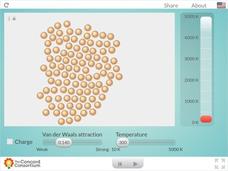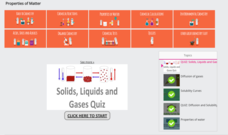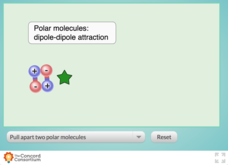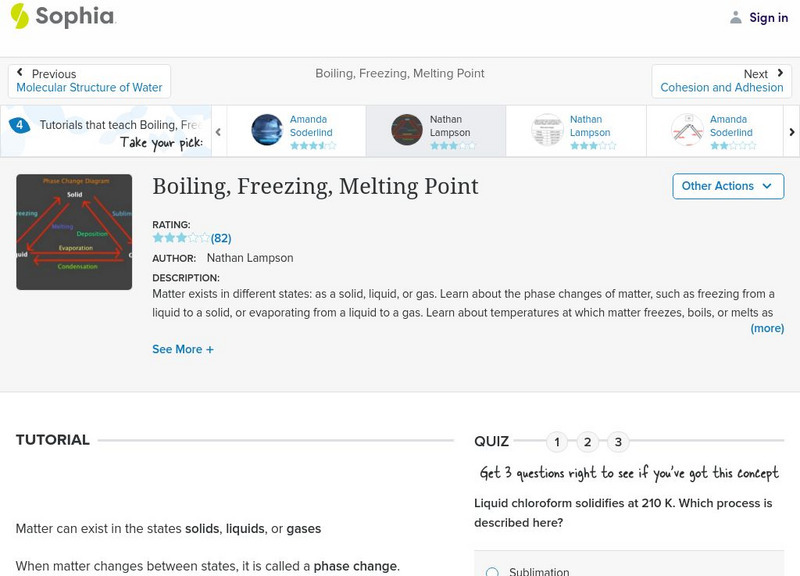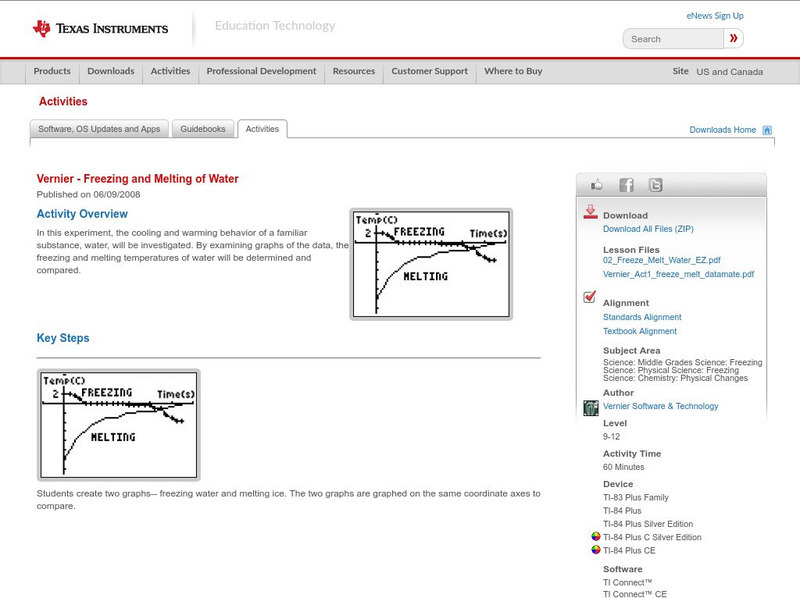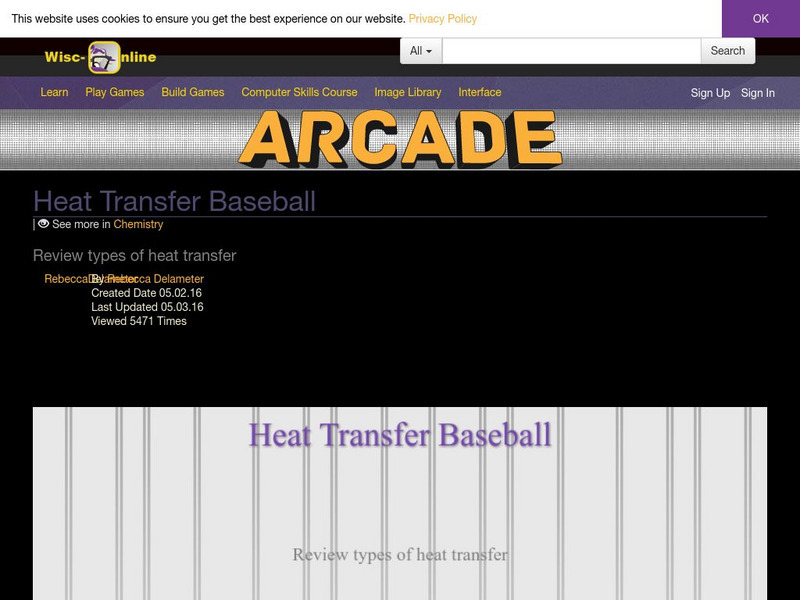Concord Consortium
Charged and Neutral Atoms
Do charged and neutral particles behave differently as they undergo phase changes? Science sleuths examine two types of attractive forces using an informative interactive. Pupils can vary the amount of Van der Waals attraction present...
Royal Society of Chemistry
Symbols
Chemistry calculations can look a bit like alphabet soup at times. How do you help pupils make sense of it all? An interactive resource helps scholars sort through the symbols for common quantities such as moles, boiling point, and...
Center for Learning in Action
Water—Changing States (Part 1)
Here is part one of a two-part lesson in which scholars investigate the changing states of water—liquid, solid, and gas. With grand conversation and up to three demonstrations, learners make predictions about what they think will happen...
Fuse School
Quiz: Solids, Liquids and Gases
Time to show what they know! Module five in a 14-part series about solids, liquids, and gases redirects to an interactive quiz. Learners test their skills on topics such as states of matter, phase changes, and Brownian Motion. With...
Mr. E. Science
Changes in Matter
Do solids, liquids, and gases even matter? The presentation focuses on changes in matter, including phases, Boyle's Law, Charles' Law, and physical changes.
Concord Consortium
Comparing Dipole-Dipole to London Dispersion
Which intermolecular force is the strongest? Scholars test the relative strength of London dispersion forces, dipole-dipole interactions, and induced dipoles using a simulator. The interactive allows learners to pull on paired molecules...
Jefferson Lab
The Periodic Table of Elements
A study of the periodic table of elements doesn't have to be elementary! Deepen understanding of the building blocks of chemistry with an interactive periodic table. At first sight, the table looks like a standard reference page, but a...
University of Georgia
Resumé of an Element
Class members use the provided worksheet to create a resume for one element from the periodic table. The activity teaches learners about all of the properties of elements and how to read the periodic table.
Sophia Learning
Sophia: Boiling, Freezing, Melting Point: Lesson 2
This lesson will introduce the phase changes that occur at the boiling, freezing, and melting points. It is 2 of 4 in the series titled "Boiling, Freezing, Melting Point."
Sophia Learning
Sophia: Boiling, Freezing, Melting Point: Lesson 4
This lesson will introduce the phase changes that occur at the boiling, freezing, and melting points. It is 4 of 4 in the series titled "Boiling, Freezing, Melting Point."
Sophia Learning
Sophia: Boiling, Freezing, Melting Point: Lesson 1
This lesson will introduce the phase changes that occur at the boiling, freezing, and melting points. It is 1 of 4 in the series titled "Boiling, Freezing, Melting Point."
CK-12 Foundation
Ck 12: Physical Science: Melting
[Free Registration/Login may be required to access all resource tools.] What happens to matter when it melts and the definition of melting point.
Texas Instruments
Texas Instruments: Freezing and Melting of Water
Freezing temperature, the temperature at which a substance turns from liquid to solid, and melting temperature, the temperature at which a substance turns from a solid to a liquid, are characteristic physical properties. In this...
E-learning for Kids
E Learning for Kids: Science: Kaap De Goede Hoop: Why Do Changes in State Take Place?
Zander is on a camping trip. Join him, and help him learn about boiling and melting points.
BBC
Bbc: Gcse Bitesize: Predicting Chemical Reactions
This lesson focuses on the physical properties of halogens, Group 7 elements on the Periodic Table. It includes the physical properties of the elements, provides a graph showing the melting and boiling points of the halogens, and links...
CK-12 Foundation
Ck 12: Chemistry Simulation: Salty Roads
[Free Registration/Login Required] Explore how solutes can keep roads clear of ice in the winter by learning how different types and concentrations of a solute affect the freezing point of a solution.
BBC
Bbc: Gcse Bitesize: What Does the Periodic Table Tell Us About the Elements?
The elements in Group 7 of the Periodic Table are called the halogens. They include chlorine, bromine and iodine. Learn about their properties and uses, then take a quiz.
Wisc-Online
Wisc Online: Chemistry: Heat Transfer
Answer the thermal energy transfer questions correctly, and advance around the baseball diamond.
